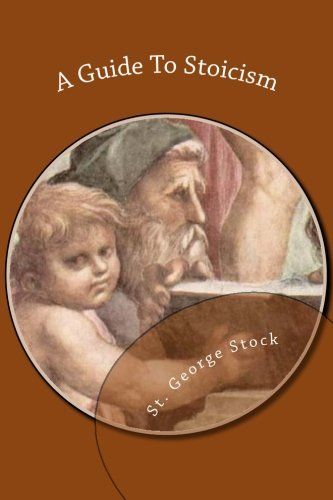
A Little Book of Stoicism
"A Little Book of Stoicism," though small, is a clear, and thoughtful classic by St. George Stock. Considered to be a concise primer on Stoicism, "A Little Book of Stoicism" explains the ancient philosophy that maintained that the universe is governed entirely by fate and that humans can achieve happiness only by cultivating a calm acceptance of the vicissitudes of life. Among the Stoics of the Greek and Roman world were its founder, Zeno, the former slave Epictetus, and the Roman emperor Marcus Aurelius. George Stock discusses not only the Stoic ethics, but also less well-known aspects of Stoicism, such as its division of the branches of philosophy, its account of logic, and its natural philosophy. "A Little Book of Stoicism" provides a solid outline on Stoicism and lucid, though brief, analysis of the strengths and limitations of stoical issues. Stoicism was a school of Hellenistic philosophy founded in Athens by Zeno of Citium in the early 3rd century BC. The Stoics considered destructive emotions to be the result of errors in judgment, and that a sage, or person of "moral and intellectual perfection," would not undergo such emotions. Stoics were concerned with the active relationship between cosmic determinism and human freedom, and the belief that it is virtuous to maintain a will (called prohairesis) that is in accord with nature.